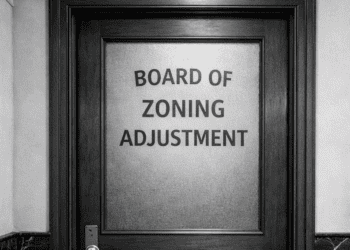The American Enterprise Institute released a report earlier this year on the benefits to walkable oriented districts. Among the main takeaways of the report are:
- Since the 1950s the focus of suburban development has largely been on the separation by function: residential from commercial and office.
- This has included a strong bias towards travel by automobile with minimal or no consideration given to walkability, especially to run errands.
- These trends combined with overly restrictive zoning and land use laws have driven up the cost of land and created a severe rental and owner housing shortage.
- Research by the AEI Housing Center has shown that across the nation around 20% of existing housing units are already located in both pre- and post-1950 Walkable Oriented Development (WOD) areas.
- Modestly increasing residential density in such areas even from a 1- to a 2-unit structure would result in a much needed and meaningful addition to our housing supply, enhance the vibrancy of commercial areas, and yield a significant boost in property tax revenue.
- In September 2021 California, following Oregon’s lead two years earlier, legalized 2-unit structures across wide swaths of the state.
- WOD would bring housing closer to service jobs thereby reducing transportation and housing costs, while freeing up time for other activities such as recreation and child care.
- Nationally, the AEI Housing Center estimates that a focus on WOD has the potential to add 2 million private homes over 10 years to our housing stock while taking advantage of existing developed land and infrastructure at little taxpayer cost.
Click here to access the full report.










What Missouri can learn from Kansas’s budget crisis